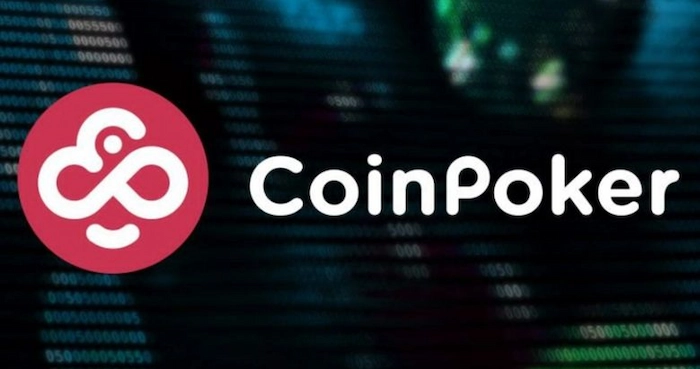The online poker landscape has undergone significant transformation since its inception, evolving from niche platforms to a multi-billion dollar global industry.

This evolution is marked by technological advancements, regulatory changes, and shifting player demographics.
Delving into the trends shaping the future of online poker, we will explore the factors driving growth, the emergence of new technologies, and predictions for the industry’s trajectory over the coming years.
Historical Context
Online poker first emerged in the late 1990s, with the launch of platforms like Planet Poker in 1998.
The industry’s growth accelerated in the early 2000s, massively helped by Chris Moneymaker’s victory in the 2003 World Series of Poker Main Event, which sparked a poker boom.
This period saw an influx of players drawn to the game, thanks to televised events and shows such as the class Poker After Dark.
However, regulatory challenges, especially in the United States, led to significant setbacks, notably the Unlawful Internet Gambling Enforcement Act (UIGEA) in 2006 which worried many that it might be lights out for the industry.
Despite these hurdles, online poker rebounded with states like New Jersey and Nevada legalising online gambling in the early 2010s. This resurgence laid the groundwork for a more robust and regulated online poker environment.
As of 2024, the global online poker market is projected to reach approximately $193.8 billion by 2030, growing at a compound annual growth rate (CAGR) of 11.5% from 2024 to 2030.
Key Trends Shaping Online Poker
Legalisation and Regulation
The continued legalisation of online poker across various jurisdictions is one of the most significant trends impacting the industry.
As more states in the United States and countries worldwide recognise the potential tax revenue from regulated online gambling, they are moving towards establishing legal frameworks for online poker.
This trend not only increases market size but also enhances player safety and trust as grey area markets become a part of the mainstream.
Mobile Gaming Dominance
With smartphones becoming ubiquitous, mobile poker applications have surged in popularity. In fact, it’s necessary for any ambitious platform looking to grow a user base.
Players appreciate the flexibility and convenience that mobile platforms offer, allowing them to engage in games any time and any place.
The development of intuitive mobile interfaces and seamless gameplay experiences has been crucial in attracting new players and retaining existing ones.
Integration of Cryptocurrencies
The incorporation of cryptocurrencies into online poker platforms has fundamentally transformed player engagement, presenting a range of benefits compared to traditional payment methods.
A prominent example is CoinPoker, which leverages blockchain technology to enhance the overall poker experience.
CoinPoker primarily operates on the Ethereum blockchain and utilises its own cryptocurrency, CHP (CoinPoker Token), along with stablecoins like USDT (Tether) for transactions.
This combination allows for rapid and secure financial exchanges, enabling players to deposit and withdraw funds with minimal fees and no minimum deposit requirements.
What sets CoinPoker apart is its focus on decentralisation. Players can participate without undergoing extensive Know Your Customer (KYC) verification processes. Only a phone number is required for account creation.
Moreover, CoinPoker employs an innovative decentralised Random Number Generation (RNG) system that guarantees transparency and fairness in gameplay by allowing players to verify the randomness of each hand dealt.
The simplicity of transactions, combined with features that bolster security and enhance user interaction, makes CoinPoker an appealing choice for both experienced players and newcomers.
This trend is expected to expand as more online poker operators integrate cryptocurrencies into their platforms, further driving innovation within the industry.
Technological Innovations
Technological advancements continue to reshape the online poker landscape:
Virtual Reality (VR) technology is emerging as a game-changer for online poker, offering players an immersive experience where they can interact with other players in a virtual casino setting. This technology allows for real-time face-to-face interactions without ever leaving home.
Artificial Intelligence (AI) is being integrated into online poker platforms for various purposes, including player behavior analysis. AI can enhance security considerations by ensuring fair play through cheat detection mechanisms.
Responsible Gaming
As awareness around responsible gaming increases, players are advocating for measures that promote safe gambling practices.
Operators are responding by implementing features such as self-exclusion tools, betting limits, and educational resources about responsible gaming behaviors. This trend not only protects players but also enhances operators’ reputations.
Given the many scandals we’ve seen regarding the operation of betting accounts opened by vulnerable gamblers, online poker platforms can be expected to go above and beyond
 Future Predictions
Future Predictions
The future of online poker appears bright, driven by several key predictions:
Continued Market Growth
The global online poker market is expected to continue its upward trajectory as more jurisdictions legalise online gambling and as technological innovations enhance user experiences. The increasing penetration of high-speed internet into the developing world will further facilitate this growth.
Enhanced Player Engagement through Streaming
The rise of streaming platforms like Twitch has created new avenues for player engagement in online poker.
Players can watch live streams of tournaments or cash games featuring professional players while learning strategies and techniques. This trend is likely to expand as operators continue to leverage streaming for marketing purposes.
Emergence of New Game Variants
As competition intensifies among online poker platforms, there will be an increasing focus on innovation within game offerings. New variants of traditional games may emerge to attract different demographics or skill levels. Gamification elements such as new, innovative rewards systems may also become more prevalent.
Short Deck Hold’em is one such variant which emerged in Asia on the high-stakes tables
Integration with Social Media
Social media integration will likely become a standard feature across online poker platforms, allowing players to share their experiences and achievements easily.
This social aspect can help build communities around specific games or brands as players relish being able to show off to their mates.
Global Expansion into Emerging Markets
Emerging markets in Asia and South America present significant opportunities for growth within the online poker industry.
As internet access improves and regulatory frameworks develop in these regions, operators will likely seek to establish a presence there.
The evolution of online poker reflects broader trends in technology and consumer behaviour.
With ongoing advancements in mobile gaming, cryptocurrency integration, and responsible gaming practices shaping its future, interested parties should prepare for an exciting era ahead.
The next few years promise unparalleled innovation and growth opportunities that will redefine how players engage with this game that we all love.
- Get the best rakeback deals
- See the best poker promotions
- View the latest poker news
- Get the best No Deposit Poker Bonuses
- Benefit from the biggest poker bonus
- Calculate your rakeback with the rakeback calculator
Terms and conditions apply. New customer offer and 18+ only. Should you require help regarding your betting pattern, please visit www.begambleaware.org




 Future Predictions
Future Predictions



















